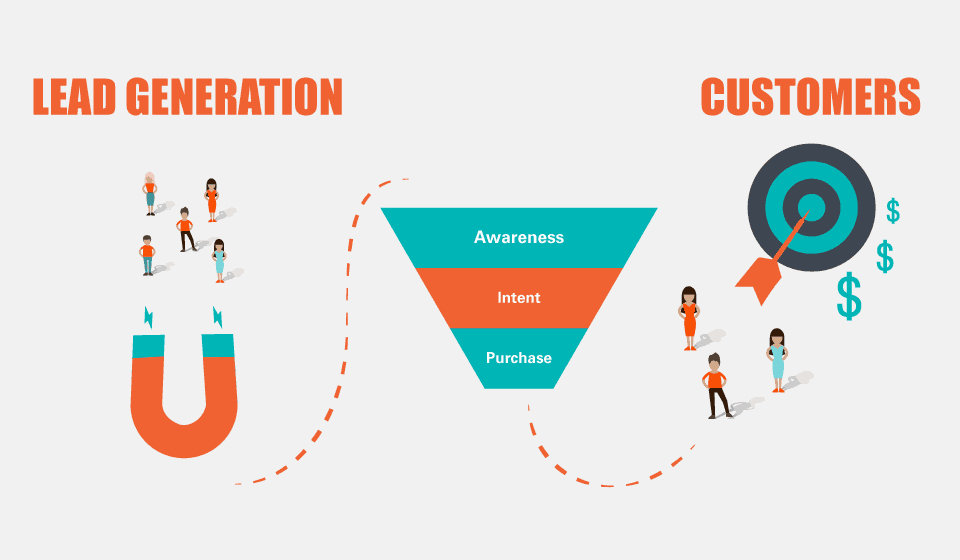Incubators have played the role of a springboard for project leaders for a decade. Many successful start-ups have started to undertake within an incubator including Dynamique Entrepreneuriale. Joining one proves to be very beneficial thanks to the many services that you will have access to and the support that is a definite asset.
What is an incubator?
An incubator is a support structure for creating a business for a specific time. Its purpose is to transform an innovative idea into a more efficient business. The incubator must, therefore, follow the innovative business in everything it does to enable it to develop.
The incubator is above all an experimental field that aims to transform an idea into a successful business. The incubators provide project leaders with “innovative” services (traditionally technological but sometimes not) as well as accommodation that increases the chances of the survival of the business.
The different types of incubators
What are the elements to take into account before choosing an incubator? There are several types of incubators, the best known are:
– Research public incubators
They were created as part of the call for projects provided for by the law on research and innovation (Allègre law) of July 1999. Public incubators, or Allègre are supported by the Ministry of Higher Education and Research. Their objective is to promote the transfer of technologies developed in public research laboratories to the socio-economic world through the creation of innovative companies.
– Private incubators
They can be initiated by entrepreneurs, investors, professional associations, etc. with or without the support of public partners and large companies. Some of them take the form of accelerators.
– Incubators attached to Grandes Ecoles
They are present in the major engineering schools such as Centrale, Polytechnique, Telecom Paris Tech, etc. and the major business schools: HEC, EM Lyon, ESCP, ESSEC, Polytechnique or Business School, etc. Some work with specialized structures. This type of incubator is only accessible to students or alumni of the school. In the event that the project already includes several people, at least one of the project leaders must have been enrolled in the school.
The services offered vary from one structure to another.
Large business incubators
In the current context, characterized by a strong digital transformation of certain sectors, large companies have implemented open innovation strategies, in particular by creating their own incubator in order to attract new talent and resources. The objectives are multiple: to improve the commercial efficiency of a product, to create a new offer, to promote the emergence of an intrapreneurial culture within the teams, etc.
– European Centers for Business and Innovation
CEEIs are public organizations that identify innovative business creation projects in order to support them. Their label comes from the European Union. They have the support and support of the European Commission through the EBN network (European Business and Innovation Center Network).
– The pioneers
This network is dedicated to innovative projects led by women. They have the support of the town hall and the region of establishment, and also by the caisse des dépôts et consignations, and private organizations.
– Local authority incubators
They depend on a region, a metropolis, etc. to contribute to the attractiveness and economic or even social development of their territory.
The contributions of an incubator
• It allows the acquisition of know-how. Incubators help with the formulation of the business model, tools such as the business plan, patent filing, and all aspects relating to intellectual property. But it also offers the possibility of increasing your skills. Thanks to work on the project leader, incubators help to develop self-confidence, stimulate and trigger action.
• It also offers more credit and more pace to the entrepreneur. Likewise, it removes him from any isolation. The group dynamics allow the project leader to come out of isolation and he can challenge the project and thus have the necessary perspective for a sound judgment of the project.
• It helps give credibility to the project and succeed in its entrepreneurial career.
• It allows them to benefit from networking, particularly for seeking financing.
Incubators often have close relationships with business angels, seed funds… Some incubators offer companies that request it a repayable advance.
5 Good Reasons to Join an Incubator
• Benefit at a lower cost from premises for your business
How many entrepreneurs have started their business in their small studio under the roof? Joining an incubator makes it possible to work in optimal conditions and away from home, which is an important motivating factor for the project leader. The incubator provides the entrepreneurs who frequent it with an office, a computer, and office equipment such as a photocopier or a fax.
• Benefit from support and advice from coaches and experts.
The incubator is not only a workplace for the entrepreneur, it is also, and above all, a place where he can be supported throughout the development of his project. Coaches come to provide personalized advice to the incubates and follow them throughout the incubation period. Collective sessions are also organized to raise awareness among project leaders on topics that concern them. Notably, financing, management, HR, taxation…: a tailor-made program to promote the sustainability of start-up businesses.
• Meet other project leaders.
Within the incubator, there are many business creators with often very varied profiles. Talking with these project leaders with different sensibilities and experiences allows us to enrich their idea of creation in a notorious way. We are stronger together than if we remain isolated! The incubated support each other in the development of their business, pass on good tips, and can even do business together.
• Challenge yourself.
The incubation period is not eternal! During the few months when the project leader frequents the incubator, he strives to achieve the development objective that he set for himself upon entry. This is why regular meetings with the coaches allow him to take stock of the progress of his work. Thus, the objectives set with the coach motivate the project leader in his work of developing the business.
• Avoid getting lost on the wrong tracks and making mistakes.
The regular support of the incubator’s experts allows the project leader not to waste his precious time in developing his business. Indeed, he indicates the errors and traps into which he could fall. A solution that avoids many problems for entrepreneurs. With this, there is no longer any excuse not to succeed in a project!
Choosing an incubator
It is important to know that some incubators cannot support all projects. Consequently, it is therefore necessary to choose an incubator according to its activity. In reality, there are incubators dedicated to digital technology and others to culture or biotechnology. This is why we must know them well. Thus, “allègre” incubators are generally dedicated to projects that expose technological innovations. The project must be known by a public research laboratory. As for the pioneers, they specialize in innovative services.
For example, the best-known incubators in Île-de-France are those of Paris Région Lab. This network brings together more than twenty incubators in Paris, some with classic support, others qualified as corporate because they are set up in partnership with large groups (Connected mobility with Renault, Urban and connected services with JCDecaux, Breathe in the city with Air Liquide’s iLab…) . Apart from Paris Région Lab, we can also mention Le Camping or La Cantine, which are successful co-working spaces.




